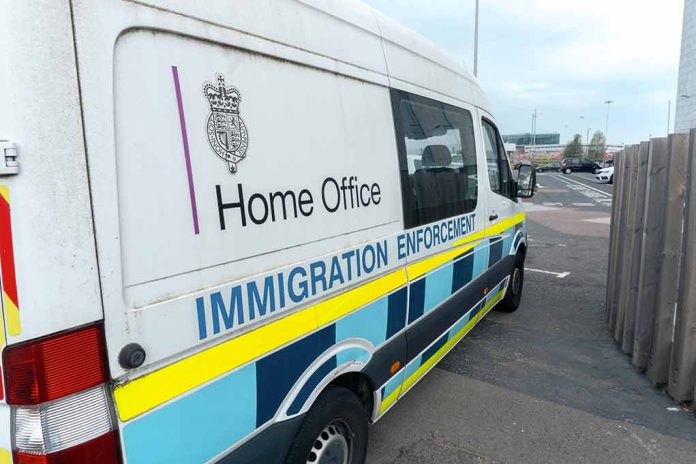
Cuba and Venezuela have launched bitter attacks against President Trump’s latest travel restrictions, branding them “racist” while ignoring their own documented failures to cooperate with U.S. immigration authorities.
Key Takeaways
- President Trump’s new travel restrictions affecting 19 countries, including Cuba and Venezuela, took effect on June 9, 2025, sparking outrage from both authoritarian regimes.
- Both governments specifically targeted Secretary of State Marco Rubio, accusing him of orchestrating “racist” policies, with Venezuela claiming he has “hatred of the Venezuelan people.”
- The U.S. justified the restrictions based on high visa overstay rates, refusal to accept deportable nationals, and ongoing security concerns.
- Even Venezuela’s opposition groups have offered mixed responses, with some requesting that the restrictions be focused only on regime supporters rather than all citizens.
- Both regimes have discouraged their citizens from traveling to the U.S., with Venezuela specifically calling America a “dangerous country.”
Authoritarian Regimes Cry “Racism” Over U.S. Travel Restrictions
The socialist regimes of Cuba and Venezuela have responded with predictable outrage to President Trump’s new travel restrictions, which went into effect on June 9, 2025. Both governments have characterized the restrictions as racially motivated, despite the U.S. government’s clear explanation that the measures address legitimate national security concerns, including high visa overstay rates and the refusal of these regimes to accept the return of their nationals ordered removed from the United States. The restrictions affect 19 countries in total, with both Cuba and Venezuela prominently included on the list.
Cuba’s Foreign Minister Bruno Rodríguez Parrilla wasted no time in attacking the policy, focusing his criticism not on addressing his government’s documented failures to cooperate with U.S. authorities, but instead on alleged racial motivations. His statement painted the restrictions as an attack on Cuban families rather than a legitimate security measure implemented by the sovereign United States government to protect its borders and citizens.
“New U.S. entry ban on nationals of several countries has racist undertones with support from anti-Cuban politicians. It harms contact between Cuban families. It damages personal, professional, academic, and cultural exchanges between the two countries,” said Bruno Rodríguez Parrilla
Venezuela’s Regime Singles Out Secretary Rubio
The Maduro regime in Venezuela took an even more aggressive stance, specifically targeting U.S. Secretary of State Marco Rubio in their response. The regime, which has overseen the collapse of what was once Latin America’s wealthiest economy, made no mention of its systematic human rights abuses or its refusal to cooperate with U.S. immigration authorities. Instead, it focused on personal attacks against Secretary Rubio, a Cuban-American who has been a vocal critic of socialist dictatorships in the region.
“This operation has been promoted by the current Secretary of State, Marco Rubio, an official known for his hatred of the Venezuelan people, who has made systematic aggression his foreign policy, with the support of the Venezuelan far right,” said Venezuela’s socialist regime.
Both regimes have gone so far as to advise their citizens against traveling to the United States, with Venezuela’s government specifically describing America as a “dangerous country.” This hyperbole comes from a regime that has forced nearly 8 million of its citizens to flee their homeland due to political persecution, economic collapse, and widespread violence under socialist rule.
Opposition Groups Offer Mixed Responses
Interestingly, even opposition groups within Venezuela have offered mixed responses to the travel restrictions. The Democratic Unitary Platform (PUD) coalition requested that Venezuela be removed from the restricted list, arguing that ordinary citizens should not be punished for the actions of the Maduro regime. Their statement emphasized the ongoing struggle of Venezuelans against their authoritarian government while appealing for international support.
“The Venezuelan people are fighting for democracy, human rights, and dignity. We therefore request that the US government review this decision and remove Venezuela from the list. We deserve the support of the free world, not additional punishment,” stated the Democratic Unitary Platform (PUD).
Meanwhile, Venezuela’s Vente Venezuela party took a more nuanced approach, requesting that restrictions be focused specifically on regime supporters and those committing illegal acts rather than all Venezuelan citizens. This highlights the complex reality that while many ordinary citizens are victims of these authoritarian regimes, both governments have systematically abused the U.S. immigration system for years. President Trump’s policy addresses these legitimate concerns while prioritizing American security interests.




